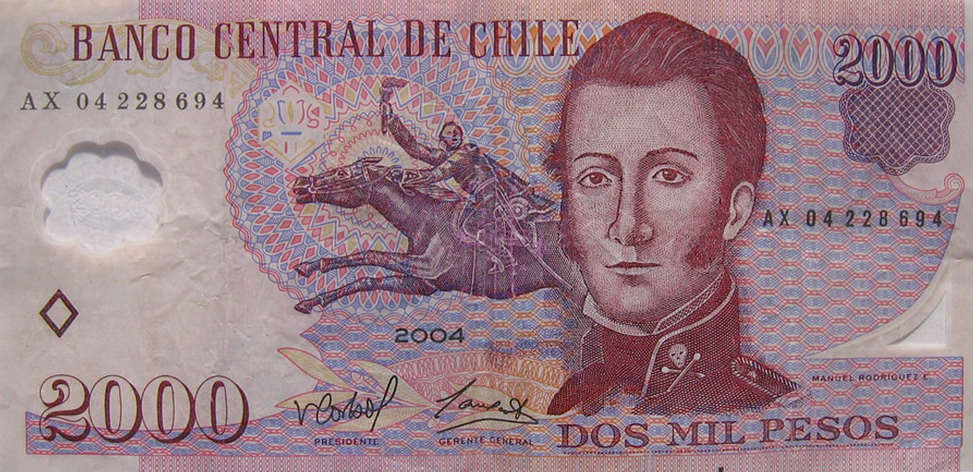
Know your customer, alternatively known as know your client or simply KYC, is the process of a business verifying the identity of its clients and assessing their suitability, along with the potential risks of illegal intentions towards the business relationship. The term is also used to refer to the bank regulations and anti-money laundering regulations which govern these activities. Know your customer processes are also employed by companies of all sizes for the purpose of ensuring their proposed customers, agents, consultants, or distributors are anti-bribery compliant. Banks, insurers, export creditors and other financial institutions are increasingly demanding that customers provide detailed due diligence information.

Augusto Pinochet was a Chilean general, politician and dictator of Chile between 1973 and 1990 who remained the Commander-in-Chief of the Chilean Army until 1998 and was also President of the Government Junta of Chile between 1973 and 1981. His nefarious deeds were made so much worse by the knowledge that bankers, trustees and financial services professionals all made money from handling the money of obvious criminal activity.
The stories of Augusto Pinochet landing in Bahamas, for example, with a military entourage, to escort trunks of cash money to the banks, turned out to be true and also very embarrassing that everyone watched and no-one did anything, until General Pinochet became too brazen, went too far and got caught. Then he became the poster boy for “Know Your Customer” laws when several top level executives went to prison for aiding and abetting. From that day forward the financial service professional would be held liable for proceeds of crime being serviced by his agency

In 2004, a United States Senate money laundering investigation led by Senators Carl Levin (D-MI) and Norm Coleman (R-MN)—ordered in the wake of the 11 September 2001 attacks—uncovered a network of over 125 securities and bank accounts at Riggs Bank and other U.S. financial institutions used by Pinochet and his associates for twenty-five years to secretly move millions of dollars. Though the subcommittee was charged only with investigating compliance of financial institutions under the USA PATRIOT Act, and not the Pinochet regime, Senator Coleman noted:
This is a sad, sordid tale of money laundering involving Pinochet accounts at multiple financial institutions using alias names, offshore accounts, and close associates. As a former General and President of Chile, Pinochet was a well-known human rights violator and violent dictator.

Over several months in 2005, Chilean judge Sergio Muñoz indicted Augusto Pinochet’s wife, Lucia Hiriart; four of his children – Marco Antonio, Jacqueline, Veronica and Lucia Pinochet; his personal secretary, Monica Ananias; and his former aide Oscar Aitken on tax evasion and falsification charges stemming from the Riggs Bank investigation. In January 2006, daughter Lucia Pinochet was detained at Washington DC-Dulles airport and subsequently deported while attempting to evade the tax charges in Chile. In January 2007, the Santiago Court of Appeals revoked most of the indictment from Judge Carlos Cerda against the Pinochet family. But Pinochet’s five children, his wife and 17 other persons (including two generals, one of his former lawyer and former secretary) were arrested in October 2007 on charges of embezzlement and use of false passports. They are accused of having illegally transferred $27m (£13.2m) to foreign bank accounts during Pinochet’s rule.
Controversies about Know Your Customer or KYC Law
Controversies over this legislation/regulation/policy include:
- Know your customer places an incredible costly burden on businesses operating in the financial industry, especially smaller financial companies where compliance costs are disproportionately heavy.
- Customers may feel the information requested to be extremely intrusive and burdensome.
- Innocent, law abiding individuals such as digital nomads are very likely disproportionately disadvantaged as living a nomadic life makes it increasingly difficult or even impossible to hold any formal banking relationship anyplace in the world due to lack of proof of address, bills, and/or debt documentation required by KYC.
- Retired people who travel within their own country without having a permanent fixed address may also be disproportionately disadvantaged for the same reason.
- Jurisdictions across the Americas, EMEA, and Asia Pacific indicated that all of these jurisdictions permit a form of reliance on customer information provided by third parties. In many instances this data is incorrect, potential bank customers may be unaware of the error and there is no grievance procedure to correct or sanction the bad data provider.
- Some citizens in other countries (Canada) are fighting back against USA over-reach into their sovereign banking system and have challenged new USA law in their courts.
- The intelligence division at the Treasury Department has repeatedly and systematically violated domestic surveillance laws by snooping on the private financial records of US citizens and companies, according to government sources.
Self-sovereign ID is the solution for such a big problem and hadn’t been until the blockchain that it’s now possible. It is because of the global compliance department infrastructure being dismantled once SSI is enacted because there’s no longer be the need and this is why it’s predicted to be a trillion dollar industry.

In the end, it’s important that we recognize what can happen when fraud is ignored. The horrific loss of lives during the Pinochet regime in Chile is a chilling reminder what can happen when large amounts of money are involved. I’m not a scholar of history but I understand he caused allot of human misery and obviously stole allot of money. Where did all that money come from is also now asked in Anti Money Laundering (AML) reports. It is now all this compliance that has caused a bottleneck and a multi-billion per year KYC industry.
It took the criminal actions of one corrupt dictator to begin exposing the culpability of the financial experts involved, to bring transparency to cross-border financial services, also known as offshore banking. Now with SSI the entire compliance infrastructure will be replaced by a completely separate KYC framework that will operate in real-time, for one purpose only, to verify and authenticate Self-sovereign ID.

Leave a Reply